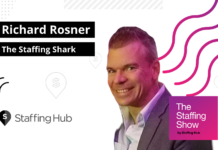
By Eric Taussig, founder and CEO of Prialto
Traditional staffing models focus on hiring individuals to meet a specific identified need. This approach makes sense for core functions where your company builds the expertise in-house.
In the case of non-core functions, companies often outsource work to a firm that can provide the staff, the process, and the technology. This approach is usually taken to tackle short-term or finite projects like:
- Developing a mobile app (outsource to a software shop)
- Implementing a technology like an ERP (outsource to an IT service provider)
- Designing a new website (outsource to a contractor via Upwork or Fiverr)
But what if you are trying to fill non-core long-term, even permanent roles but either cannot find the people or do not have the experience or expertise to vet, hire, train and manage them?
Vanishing executive assistants
In January 2020, just before the pandemic sent us all home, the Wall Street Journal reported about “The Vanishing Executive Assistant”: “More than 1.6 million secretarial and administrative-assistant jobs have vanished since 2000, according to federal data, an almost 40% decline.”
At the same time, all the productivity technology that has become ubiquitous over the past 20 years has created the expectation that executives can take care of their own administrative tasks like scheduling meetings, planning travel, filing expenses, and contact management. According to Service Now, it has gotten to the point where executives spend 16 hours per week—the equivalent of two full working days—on day-to-day admin work. In a sense, companies have insourced $20 per hour work and put it on the plate of $100 per hour executives. The work is not differentiating for most companies, but it is important, nonetheless. It makes sense to automate or delegate this work.
Companies looking to support executives with admin help face an uphill battle. Few people are looking for administrative jobs. In its 2022 Index, job website Lensa said receptionist and administrative assistant are two of the most challenging positions to fill. If you can’t fill them, your company has lost or never developed the competency to manage and develop people in this role.
Enter subscription staffing
Enter managed subscription-based staffing services for virtual assistants. Managed service providers are filling a new role in the contingent workforce industry by supplying skilled, trained, and managed professionals from areas of the world where talent is plentiful but meaningful job opportunities are scarce. In this model:
- The service provider hires, trains, supervises, pays, and provides benefits and career development for employees.
- The service can scale to provide teams of executives, adding new assistants on demand.
- Clients get long-term, fully embedded remote teammates without any added management lift.
- The assistants work in teams, cross-training to provide backup assistants ready to take over when a primary assistant is unavailable or a business wants to add more assistants with minimal onboarding quickly.
Not traditional outsourcing
Subscription-based managed staffing differs from traditional outsourcing, where a business offloads a discrete business process or project to an offshore entity—anything from software development to manufacturing to customer service. The employees of these firms do not work directly with the hiring team but are responsible for delivering a project or business process.
With subscription staffing, the hiring business adds teammates for remote work on an ongoing basis, for example, roles that are hard to fill locally for whatever reason—a scarcity of talent or high labor costs. This staffing model also differs from traditional outsourcing in that the service provider bears most of the risk and quality control.
Alternative to gig marketplaces
A more common form of outsourcing administrative tasks is to use a marketplace like Upwork to hire individual assistants. While this model can work for small organizations, it does not quickly scale to support teams of executives. Staffing Industry Analysts, in the first-ever assessment of the virtual assistant marketplace– ”The Virtual Assistant Landscape” –published last year, differentiated between marketplaces and virtual assistant agencies and the managed service approach this way:
“The more sophisticated and highly developed VA firms will offer a managed service where Virtual Assistants are supervised locally with the quality of work checked and with regular training and development offered. This contrasts to a self-serve model, which is more akin to a platform that facilitates the introduction of a client to a Virtual Assistant and does not provide ongoing support throughout the engagement. Companies working through a self-serve platform will have to take care of their own training requirements and generally manage their own quality standards.”
Businesses are adopting the subscription-based virtual assistant service model because the traditional executive assistant has all but vanished as a career path in the United States. Heads of talent find administrative assistant roles are more challenging to fill than ever, and turnover is high and disruptive when they do find them. They lack the resources and expertise to provide training, quality control, coaching, and career development. Finally, for large businesses, hiring executive admins one at a time, directly or through a third party, does not scale as mentioned above.
Rethinking the FTE
Businesses and employees alike are rethinking the traditional FTE model. Employees want flexibility and opportunity to advance, and employers are desperate for talent. Subscription staffing offers a solution where everyone benefits—employees in parts of the world where talent is plentiful but opportunity is scarce find stable jobs with advancement opportunities and benefits. And employers get hard-to-find workers without the time, cost, and management overhead of direct hires.
 Eric Taussig is founder/CEO of Prialto, a pioneer of managed subscription staffing for virtual assistants. He speaks and writes about the future of work, the global workforce, and employee happiness issues. His ideas have been featured on National Public Radio and in places like Huffington Post, Entrepreneur Magazine and Inc. Magazine.
Eric Taussig is founder/CEO of Prialto, a pioneer of managed subscription staffing for virtual assistants. He speaks and writes about the future of work, the global workforce, and employee happiness issues. His ideas have been featured on National Public Radio and in places like Huffington Post, Entrepreneur Magazine and Inc. Magazine.





